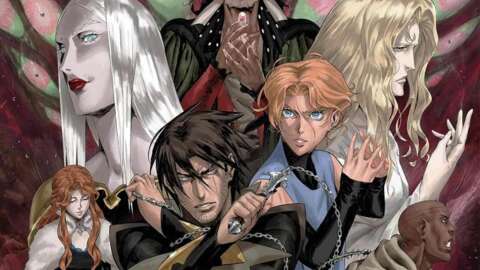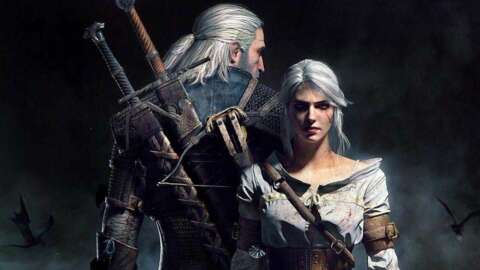This past weekend, Bollywood action-drama Animal topped the global box office and became the widest U.S. release for a Hindi-language film (on 888 screens, surpassing action bonanza Jawan and Disney superhero outing Brahmāstra: Part One). Its writer-director-editor Sandeep Reddy Vanga has courted controversy for his portrayals of brash, misogynistic protagonists – like in his 2017 Telugu-language drama Arjun Reddy and its Hindi remake, Kabir Singh – and his flippant comments about domestic abuse. Animal is no exception to his unapologetic approach, but it ends up in an awkward position thanks to this real-world context. The first half of its 201 minutes presents a livewire character-thriller in the vein of The Godfather, led by an intense and committed lead performance and sprinkled with enough gory, gonzo action to put Korean ultraviolence to shame. However, just when Animal ought to focus inward, it stagnates in the name of flipping a desperate middle finger at critics of Vanga’s previous work.
The movie opens in black and white in 2056, with an aged Ranvijay “Vijay” Singh (a 40-year-old Ranbir Kapoor in some stellar old-man makeup) celebrating the centennial of his family conglomerate, Swastik Steel. As he reminisces about his late father, a group of party guests hang on his every word as he amuses them with crass penile humor. Most of the story takes place in our present day, but before it kicks off, Vanga etches Vijay’s character in stone. The very next scene is a saccharine flashback to his childhood, during which he tries to cut class (and receives physical punishment from his teacher) just so he can attend his father’s birthday party. However, once he gets home, his excited shouts of “Papa!” simply echo off the walls of an enormous mansion; papa is too busy with the family business to spend time with his actual family.
It's hardly an unfamiliar premise, and impudent men broken by their relationships to their fathers is a key theme in Arjun Reddy and Kabir Singh. By introducing us to Vijay with scenes from his youth and old age, a tragic picture starts to emerge: This protagonist is a sycophant who worships his father and craves attention he’ll never receive. As soon as the film gets rolling, it creates an immediate and electric tension through this desperate dynamic. Between these chronological bookends, a party for Vijay’s grandfather plants the seeds of animus between Vijay and his slick, assertive brother-in-law, Varun (Siddhant Karnick). Before long, Vijay’s usually-absent father, Balbir Singh (Anil Kapoor, familiar to U.S. audiences from Slumdog Millionaire and Mission: Impossible – Ghost Protocol) steps in to publicly reprimand his doting son, further inflaming the daddy issues that define him.
This party scene is, for all intents and purposes, Vanga’s take on The Godfather’s iconic opening wedding sequence – the first of several Coppola homages. Both onscreen occasions introduce family and business dynamics, while bringing a prodigal son one step closer to the fold. Only where Al Pacino’s Michael Corleone was a respected war hero returning from battle, Ranbir’s Vijay is a spoiled and insolent brat on holiday from his expensive U.S. education, and he isn’t all that removed from his family’s imperial leanings. While Michael enters a world of violence, the destructive (and self-destructive) Vijay makes Animal a violent story.
Even before the violence turns physical (and boy, does it ever), there’s a vicious undercurrent at play thanks to the way Vijay treats the people around him, especially women. Varun may be the immediate target of his ire, but Vijay’s snappy and controlling behavior towards his sisters Reet (Saloni Batra) and Roop (Anshul Chauhan) and his childhood sweetheart Geetanjali “Geetu” Iyengar (Rashmika Mandanna), depicts a man on the verge of exploding. He's a ticking time bomb of rank ugliness; even his romantic proposals are uncouth, with talk of the width of Geetu’s “child-bearing” pelvis.
Vanga is first and foremost a provocateur, so he’s hardly oblivious to the kind of story he’s telling. At one point, he visually quotes a particularly brutal scene from No Country for Old Men, and he even invokes Nazi imagery during one of Vijay’s speeches before a crowd of factory workers. (Vijay denies any parallels between the Hindu swastik in the company logo and the Nazi swastika, but the visual framing says otherwise.) Vijay’s fascistic and deeply sexist statements go hand-in-hand with Ranbir’s pained but empty gaze, hiding not a broken young boy, but the husk of one – a man too far gone to come back from the brink. Granted, for those in the know about the real-world parameters around Vanga’s work, there remains a lingering sense that some audience members might relish in Vijay’s repulsiveness; women who have been critical of his work online have been harassed ad nauseam. If Vanga is trying to have his misogynistic cake and eat it too, then Animal is technically a success in that regard – at least in its first half, during which the camera reveres Ranbir at every turn.
The film becomes quickly front-loaded with action scenes after aping the vital plot point that catalyzes Michael Corleone’s slow metamorphosis from boyscout to ruthless gangster in The Godfather – only in Animal it takes place suddenly and off screen, for the sake of re-introducing Vijay several years down the line with some eye-catching panache. The clean-cut Ranbir emerges with long hair and a full beard (in the vein of Vanga’s other leading men), alongside an entourage of besuited, gun-toting Sikh cousins who seem to have spawned from a video game engine. It’s an entirely bizarre development – and yet, an exciting promise of cinematic maximalism, because they look cool as hell.
Animal eventually spends almost an hour in flashback to thread the needle of these developments, and this topsy-turvy structure isn’t entirely untoward. It reinforces the idea that these physical changes are largely cosmetic, and the man Vijay happens to be underneath is hardly any different. It also allows the buildup to an excessive crescendo, involving a pulsating electronic score, hordes of henchmen in skull and animal masks, a chopper motorbike that isn’t so much “fitted with three machine gun turrets” as it is three machine-gun turrets, and the aforementioned Sikh support crew belting out a victory ballad as Vijay engages in a bloody, close-quarters ax fight. This last bit is the closest thing Animal has to a musical number.
This gloriously silly midpoint (right before an intermission that most U.S. theaters will unfortunately skip past) comprises lengthy back-to-back-to-back action scenes, the first of which loses all sense of geography, though the remaining two more than make up for it in both filmmaking and concept. They even pave the way for a story where Vijay, now as broken physically as he is emotionally, appears to reckon with the last vestiges of his masculinity, as Ranbir’s commanding (if tongue-in-cheek) bravado slowly curdles into desperation. However, this is also where the movie begins doubling down and losing itself both to an overly convoluted plot, and to Vanga’s relentless, perhaps even unhealthy obsession with poking and prodding at viewers who might find three-plus hours of misogynistic rants to be even mildly unpleasant.
With the end point of all its drama firmly established – much like Vanga, Vijay is obstinate and unchanging – Animal flounders amid a litany of great ideas. It has villains who are alluring both on paper and in performance (one in particular: Abrar Haque, played by Bobby Deol) and who form fascinating mirrors to Vijay’s trajectory. Yet they aren’t even introduced until the final hour, and one of the most exciting conflicts ends up relegated to a mid-credits tease for a potential sequel.
All the while, dialogue-heavy scenes involving Vijay, Geetu, and Balbir end up simultaneously overwrought and underdeveloped. They all circle the same ideas of Vijay’s arrested development in the shadow of his domineering father (a role Anil Kapoor plays to perfection, by the way), but those ideas never evolve in their conception of character or in the way they impact the plot. Each of these exchanges goes on for what feels like forever, with sentimental music that tips them over into vapid self-parody.
The supporting cast are all tremendous, but end up tremendously wasted. Like Ranbir, the aforementioned Deol offers up a simmering and intriguing presence that verges on sympathetic, but Abrar and Vijay don’t even come face to face until the three-hour mark, so their thematic twinning is largely moot. Vijay’s closest confidant, Mishra, is played by Shakti Kapoor, but the Bollywood elder statesman with the most “cool uncle” energy is afforded few layers beyond his function to the plot.
Conversely, Batra, Chauhan, and Mandanna end up a surprisingly vital part of Animal’s tapestry. As Vijay’s sisters, Batra and Chauhan’s silent reactions speak volumes about the impact of his behavior, while Mandanna’s conflicted oscillation between disgust and adoration makes Geetu the second half’s saving grace. But given where all this ends up, the immense talent on display amounts to very little.
Theoretically, the climactic fight scene functions as a self-reflexive look at how far Vijay has fallen. But any statement that it might make comes about three hours too late considering the degree to which Vanga would rather amplify Vijay’s most repugnant qualities without using them to inform (or transform) his story. The last shot before the credits roll is, admittedly, pretty heartbreaking, but Animal is also a weirdly packaged product where scenes continue unencumbered as names scroll across the screen, as though Vanga had no idea how he wanted to end his movie, or what he wanted it to say beyond claiming to be above critique.
With Animal’s final image, Vanga practically says: “I can do whatever I want, no matter who it offends.” He can, and he certainly has here, but it’s cost him a worthwhile movie in the process.





